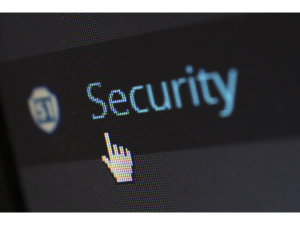 The legal profession is built on trust, discretion, and the firm notion that sensitive information communicated between attorney and client is sacred. Given the current landscape, much of this communication takes place over email, making it a gold mine for cybercriminals looking for important information. As a result, email security is more than simply an IT issue for law firms; it's also a key component of sustaining professional integrity and confidence.
The legal profession is built on trust, discretion, and the firm notion that sensitive information communicated between attorney and client is sacred. Given the current landscape, much of this communication takes place over email, making it a gold mine for cybercriminals looking for important information. As a result, email security is more than simply an IT issue for law firms; it's also a key component of sustaining professional integrity and confidence.
Why is Email a Prime Target?
- High-Value Information: Legal communications often involve confidential, sensitive information. Whether it's intellectual property, financial details, or personal data, the content of such emails is invaluable.
- Human Error: People often remain the weakest link in the cybersecurity chain. One mistaken click on a malicious link or an oversight in sending sensitive information to the wrong recipient can have severe consequences.
Protecting Email Communication: Best Practices
1. Use Encrypted Email Services
Encryption ensures that even if a cybercriminal intercepts your emails, they cannot read the content. Look for services that offer end-to-end encryption, which means that only the sender and the recipient can decrypt and read the email.
2. Implement Two-Factor Authentication (2FA)
2FA requires users to provide two forms of identification before accessing their email. This typically involves something they know (a password) and something they have (a code sent to their phone). It adds an extra layer of security, ensuring that even if a hacker has the password, they cannot access the account without the second form of identification.
3. Educate and Train Staff
Ensure that all members of your firm, from senior partners to interns, understand the risks associated with email communication. Offer regular training sessions on recognizing phishing attempts, safely sharing attachments, and the importance of regularly updating passwords and creating complex ones.
4. Utilize Anti-Phishing Tools
These tools can identify, flag, and block potential phishing emails, alerting users to suspicious content. Given that phishing remains one of the most common methods used to breach email security, such tools can serve as an essential line of defense. Also, inform clients that they should not forward your emails to third parties.
5. Regular Backups
Ensure that all email data is backed up securely. In the event of a ransomware attack where hackers encrypt your data and demand a ransom, having a recent backup allows you to restore your system without yielding to their demands. Contrary to popular belief, Microsoft (if an O365 user) does not backup your email.
6. Secure Mobile Devices
Many lawyers access emails on their phones or tablets. Ensure these devices are secured with strong passwords, biometric locks, and are equipped with remote wipe capabilities in case they are lost or stolen.
In Conclusion
For law firms, the stakes are high. A single email breach can not only lead to financial loss but can also damage a firm's reputation and client trust irreparably. By implementing rigorous email security protocols and ensuring staff adherence, law firms can protect their most sensitive communications and uphold the trust that is foundational to their work.
With the world becoming increasingly connected to technology, taking a proactive approach to email security isn't just recommended—it's essential. Remember, it's always better to prevent a cyber incident than to react to one. Protecting email communication is a pivotal step in that direction.
If you're seeking guidance on your email security or need assistance with implementation, please don't hesitate to reach out. Our dedicated team at Dia Systems is here to support you with ensuring your communications remain confidential and protected. Your trust and security are our top priorities.
Book A Call HERE



